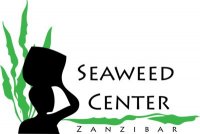Continuation Project Activities and Objectives
The overall objective for this project performed by ICM 2011 is to continue the work of developing a long‐term collaborative and consensual development between Chalmers School of Entrepreneurship and the University of Dar es Salaam and the Zanzibar Folk School in the developing nation Tanzania. The project shall create a long term sustainable business model for the Seaweed center by creating legal and financial structures and establishing sales channels and operations. We are also aiming at making the Seaweed center a center for knowledge development for the working women. Those activities will make the Seaweed center self-sustaining, make the women farmers independent and also improve the economic and social welfare for the entire Zanzibar. There are therefore four focus areas for this project:
1. Establish a market and create sales channels
One of the most important areas to develop in order to increase the income for the women working at the Seaweed center is to build a logistic structure for distribution and sales of the soap. The market at Zanzibar is most probably not large enough to meet the production capacity of soap; therefore, the opportunities to distribute the soap both local and international will be examined. More specific goals for this focus area are:
• Carry out a market analysis.
• Create a customer network with start in the west coast of Zanzibar.
• Create an entire supply and demand chain for the Seaweed center soap.
• Make it possible for the women to cut the middle hands by establishing a sales function in connection to the facility.
• Define the target customer segments for the soap and how each customer segment will be reached, i.e. find out how to make the soap attractive to all customers.
• Provide the Seaweed center with a truck to make the distribution of soap possible, both to customers at Zanzibar as well as transport to Stone Town (the main city at Zanzibar), from where it can be further distributed.
• Educate the women in how to sell the soap by carrying out on-site workshops and seminars.
Previous dialogues with the hotels located near the Paje village have shown strong interests in buying the soaps. The initial interviews and analysis made by the students enrolled in the education at Zanzibar Folk School, have shown that the hotels are willing to pay approximately 150 Tsh. / piece of soap with 50 Tsh. in manufacturing cost. This would be a great increase of the amount of turnover and profits due to the large volume.
2. Development of the Operations
In order to secure a certain production capacity of the soap manufacturing and lower the risk of failure for the production, one area that this project will focus on is the operations of the Seaweed center. The daily operational work of the center will be managed by the women farmers and the management for the Seaweed center, but we will develop some of the necessary structures for managing the organization of the manufacturing facility. This includes the following activities:
• Create a system and a payment structure for the seaweed in the drying facility. This is needed since it will be hard to keep track of who owns what seaweed in the facility.
• Development of simple management control tools in Microsoft Excel that can be used for e.g. accounting, sales statistics and to plan purchasing.
• Provide the Seaweed center with a computer that would be used for managing the operational control systems as well as for educational purpose.
• To start up the manufacturing of soap an initial investment is needed in buying raw material from the local market, packaging material etc., and it is therefore a focus area of this project to raise seed money to the Seaweed center. Those money will be used to make the operations running before the soap will bring any revenues to the center.
3. Creation of legal and company structures
In order for the Seaweed center to be a registered limited company it is required to have established company structures. One part of the project will hence focus on using our legal competence in the class and create structures such as:
• Foundation of the company
• Shareholders’ agreement
• Employment contracts
4. Establish the Seaweed center as a knowledge center
To further reinforce the sustainability of the Seaweed center the fourth focus area will be to establish a knowledge center as a part of the Seaweed center. The goal is both to spread our business expertise to the poor women in Paje through on-site workshops but also to create a continuous learning among the women. By having hands‐on workshops with reflection of real‐life situations, the goal is to create an interactive learning process with significant knowledge diffusion. The education will be executed from a sustainable‐development perspective in order to fulfill our overall goal of long‐term sustainability of this project. More specific goals for this focus area are:
• Providing knowledge toys to the children to stimulate the learning process early
• Provide English language education, in close collaboration with the Zanzibar Folk School, for the women to increase their ability to communicate with the tourists coming to the Seaweed center
• Conducting business and entrepreneurial training
Saturday, January 23, 2010
Subscribe to:
Post Comments (Atom)

Family vacations go much more smoothly when you choose a hotel or resort that plans for family trips.
ReplyDeletePalermo Hostel
Extended-stay hotels should be evaluated on their actual operational characteristics, like any other real-estate.
ReplyDeleteHoteles Tel Aviv